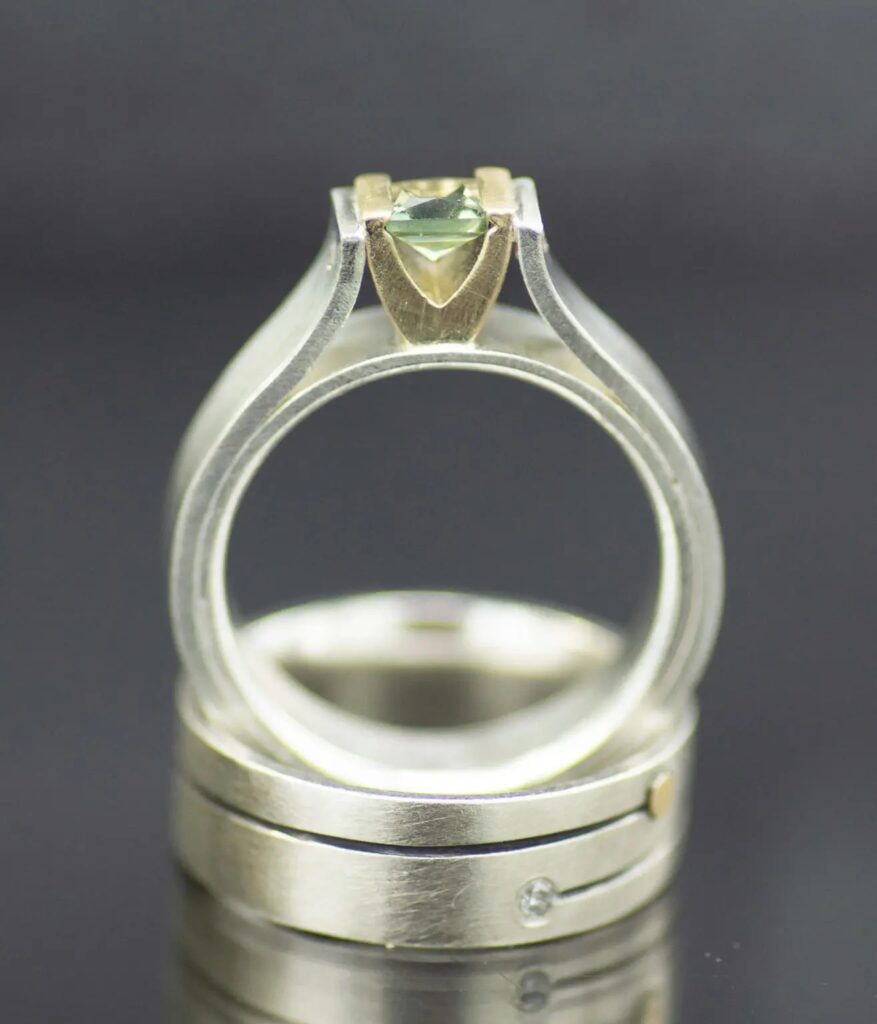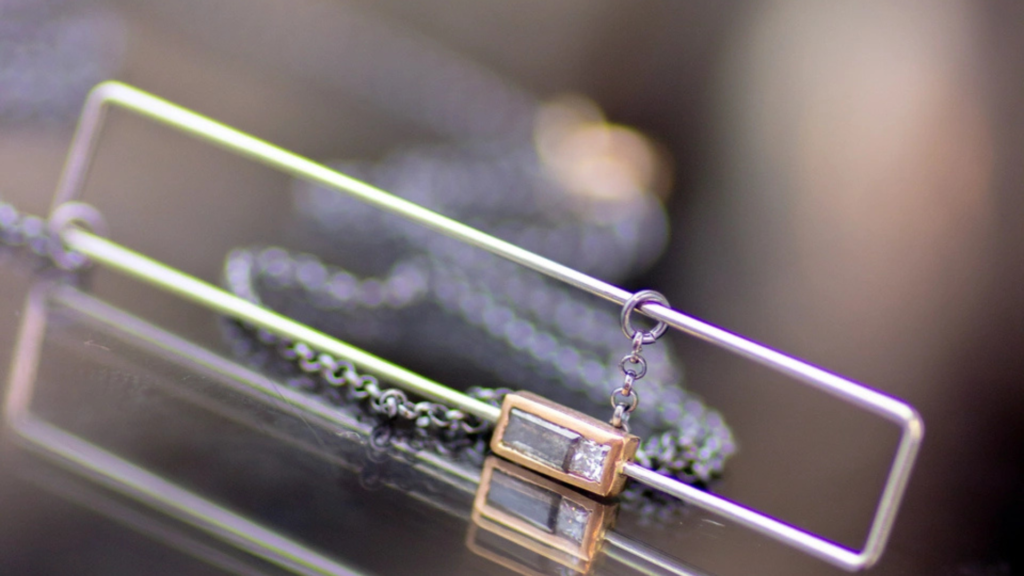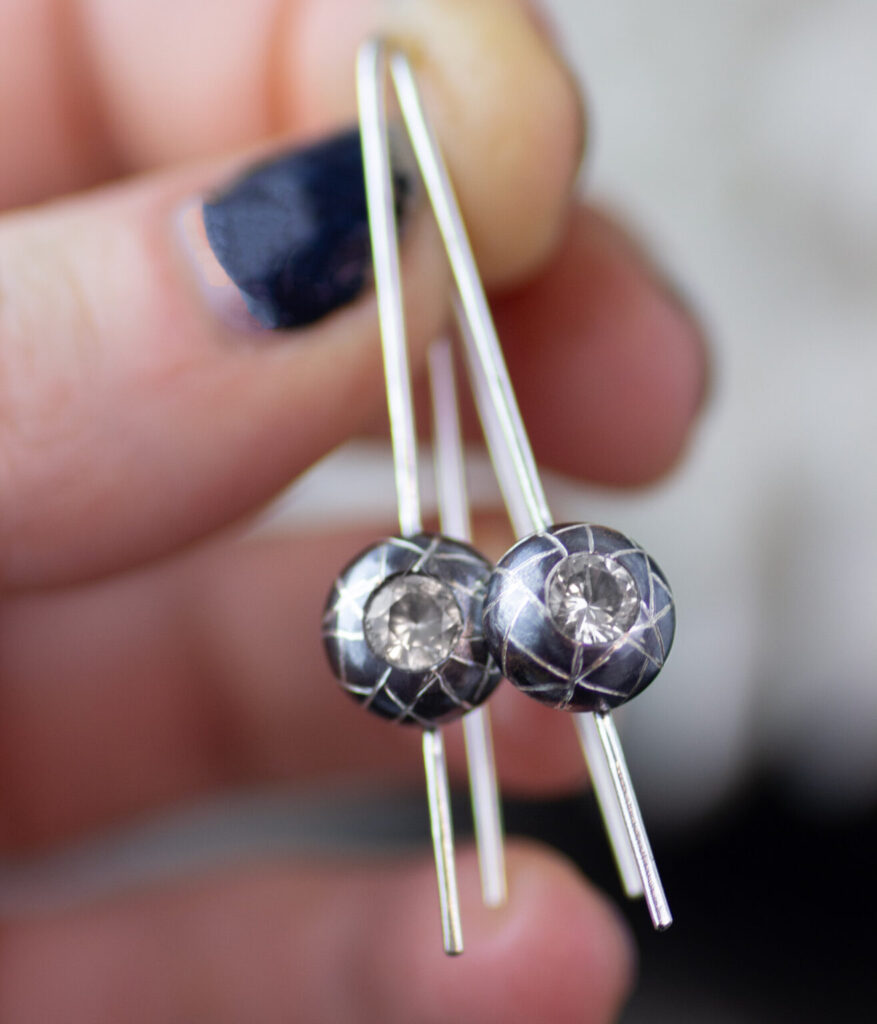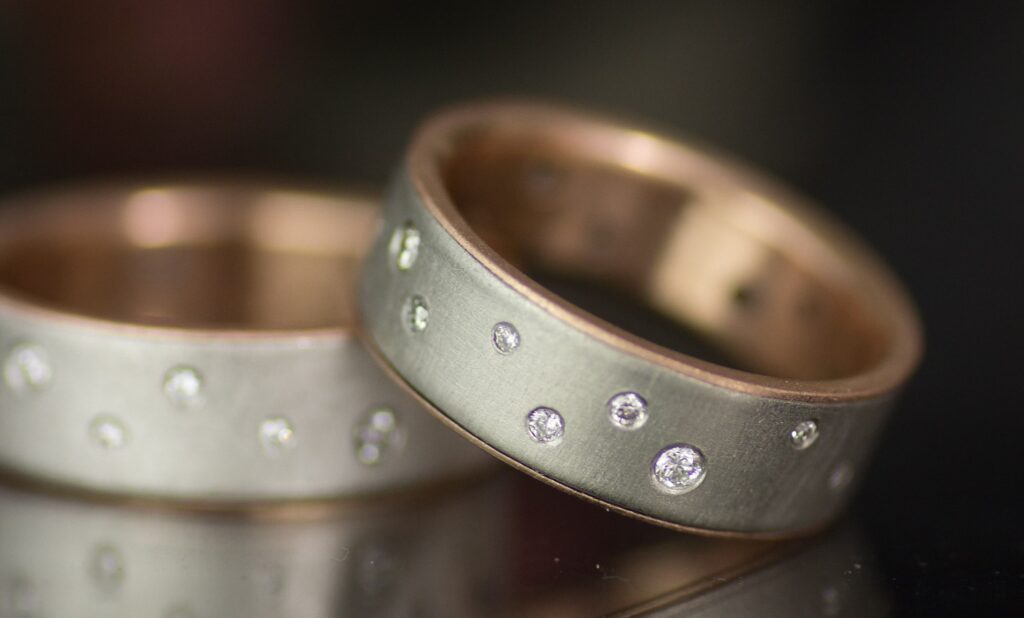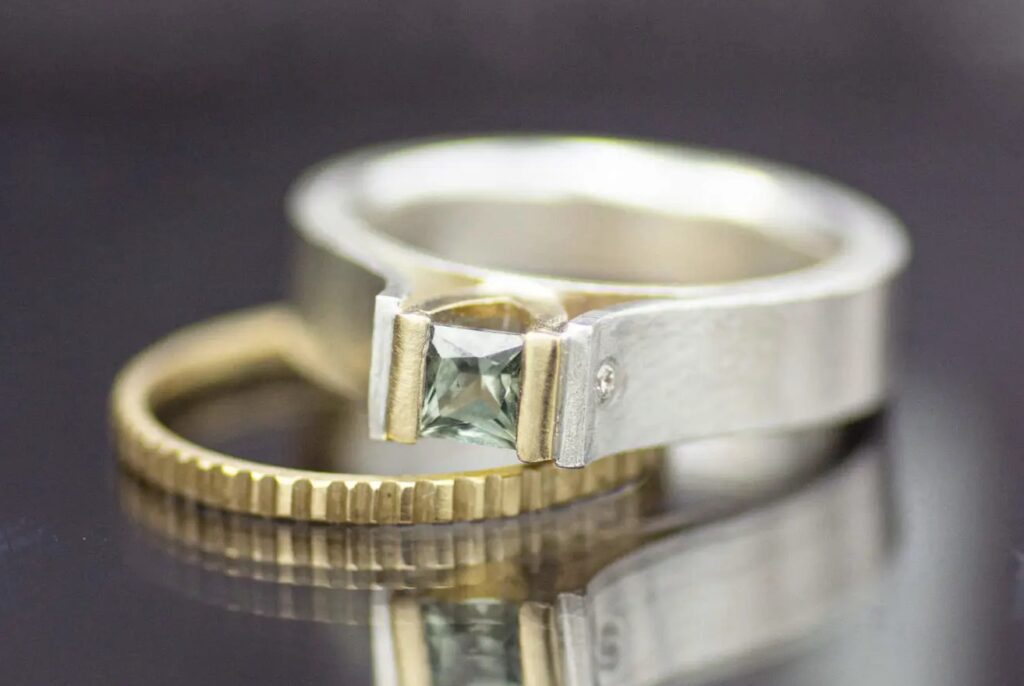Metal Alternatives to Gold for Wedding Rings: Beautiful, Durable, and Affordable Options
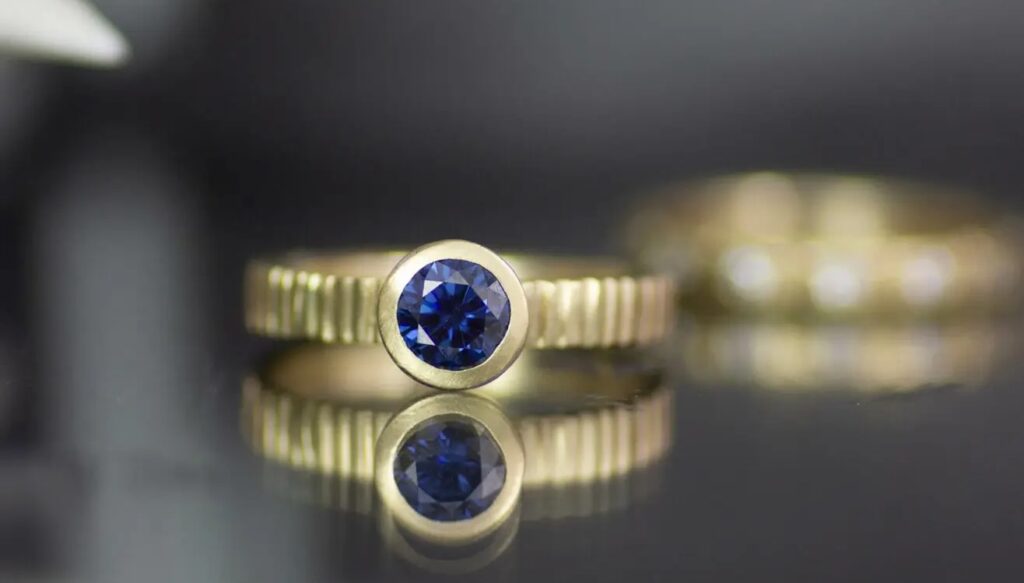
Gold prices have been skyrocketing, making it a not-so-affordable option for jewelry artists and clients alike. While gold has traditionally been a go-to choice for wedding rings, there are a plethora of outstanding alternatives. With the rising prices of gold and a growing interest in unique, durable, and affordable alternatives, more and more couples are exploring other metals for their wedding bands. And the great thing about small jewelry artists like us? Because we make our rings to order – by hand – we can switch out alloys, reduce width and height, and make adjustments in ways that large jewelers can’t.
Whether you’re looking for something unique, long-lasting, or simply more cost-effective, there are several excellent options beyond gold that can still symbolize the lasting bond between you and your partner. Let’s explore some of these metal alternatives: platinum, palladium, silver, and titanium.
Platinum: The Premium Choice
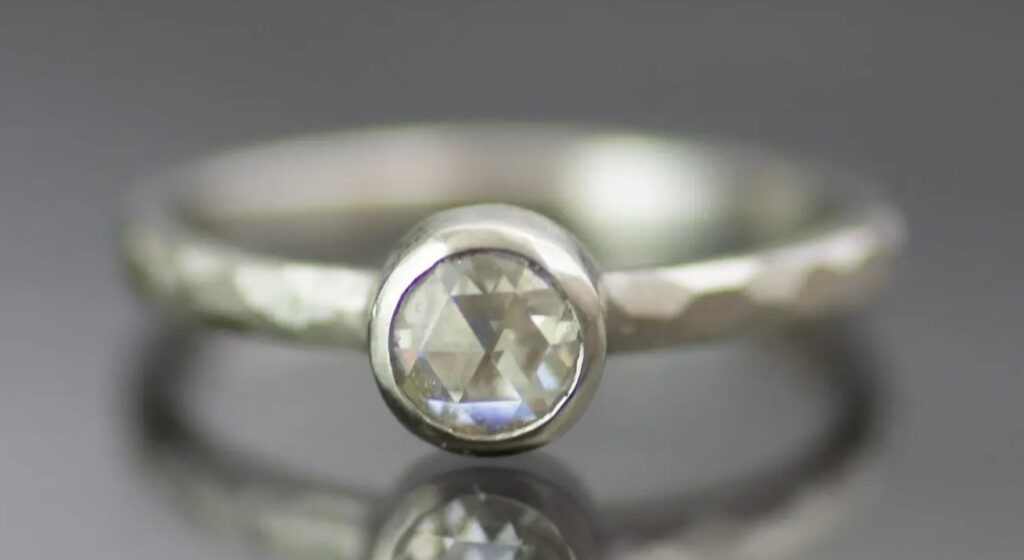
Platinum is often seen as the most luxurious metal for wedding rings. Its naturally white color and elegant sheen make it an attractive option for couples who want something that’s both beautiful and durable. Platinum is highly resistant to tarnish, corrosion, and scratching, which makes it ideal for a piece of jewelry that will be worn every day.
Although platinum has traditionally been more expensive than gold, it has become a more affordable alternative to gold in recent years due to fluctuations in metal prices. Platinum is rarer than gold, and while it tends to be more expensive upfront, its longevity and low maintenance can make it a worthwhile investment for couples looking for something that will stand the test of time.
Pros of Platinum:
- With a high level of purity, platinum is hypoallergenic, making it an excellent choice for individuals with sensitive skin or allergies.
- Known for it’s strong durability, platinum is resistant to tarnish, corrosion, and scratches.
- As a beautiful and rare metal, the naturally white color and lustrous sheen give it an elegant and sophisticated appearance, further enhancing the brilliance of gemstones.
Cons of Platinum:
- Can be more expensive than some other metals, though prices are competitive compared to gold.
Palladium: The Affordable Luxury
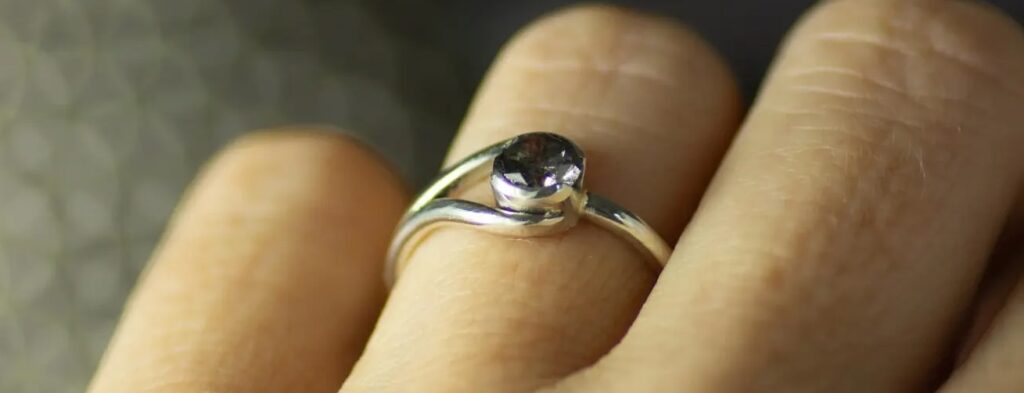
Palladium is part of the platinum family, but it’s much more affordable. Palladium wedding rings have gained popularity in recent years for their sleek, white finish and exceptional durability. Like platinum, palladium is hypoallergenic, which makes it a great choice for those with sensitive skin.
One of the biggest advantages of palladium is its lightness. Palladium is much lighter than platinum, making it an excellent choice for couples who prefer a more subtle, comfortable feel on their finger. Additionally, it is resistant to tarnishing and will maintain its bright, shiny appearance without requiring frequent polishing.
Pros of Palladium:
- The lightweight and less-dense quality of palladium leads to greater comfort in wear.
- Palladium is nickel-free and less likely to cause adverse reactions, providing a comfortable and safe option for those with sensitivities.
- Without compromising on quality, palladium is more affordable than platinum or gold.
Cons of Palladium:
- Palladium may not be as durable as platinum long-term, though it is still a very durable choice.
Silver: The Classic Yet Affordable Choice
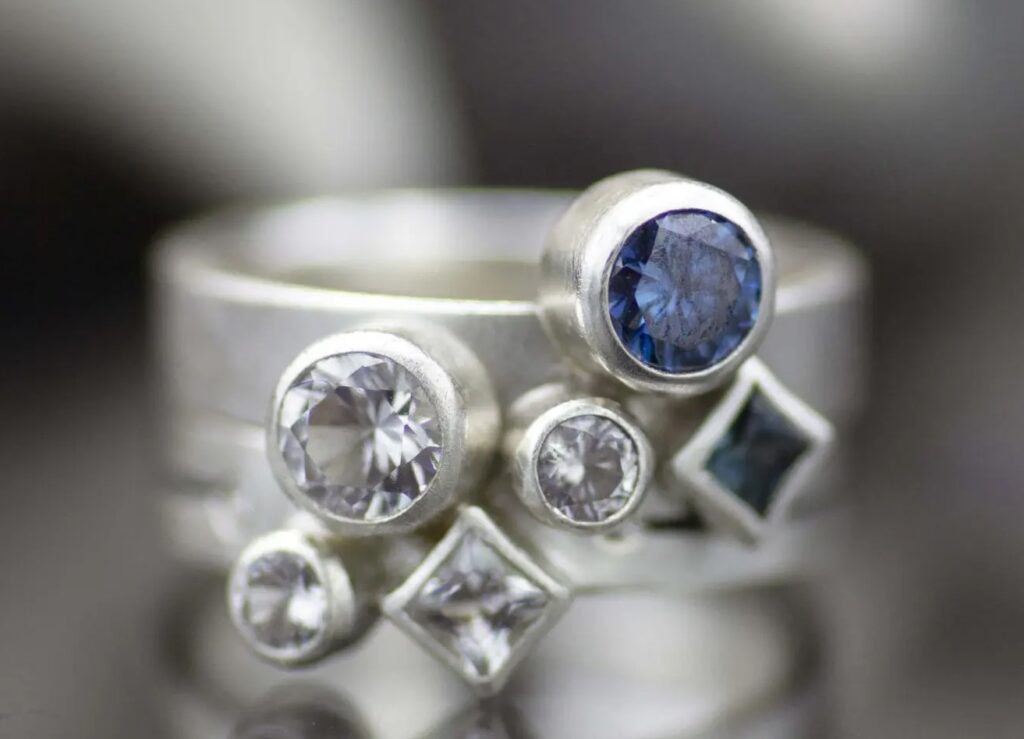
Silver has long been a classic metal used in jewelry making, and wedding rings are no exception. While silver wedding bands may not have the same luxurious appeal as platinum or gold, they still offer a beautiful and timeless look. Silver is an affordable alternative to gold and platinum, making it an excellent choice for couples on a budget who want a beautiful ring without breaking the bank.
However, silver is more prone to tarnishing and scratching than platinum or palladium. This means that silver rings will require more care and regular cleaning to maintain their shine over the years. Despite this, silver remains a popular choice for couples seeking an elegant, yet cost-effective, wedding band.
Pros of Silver:
- A more affordable option compared to gold or platinum, silver offers a beautiful natural luster.
- With greater malleability, silver allows the jewelry artist to create unique shapes and designs.
Cons of Silver:
- Silver is prone to tarnishing due to oxidation when exposed to air and certain chemicals, however this can be removed with proper maintenance and care.
Titanium: The Modern and Ultra-Durable Option
Titanium has become increasingly popular for wedding rings due to its unique combination of strength, lightweight feel, and modern aesthetic. Titanium is incredibly durable and resistant to scratches, making it perfect for couples who lead active lifestyles or work with their hands regularly.
One of the biggest benefits of titanium is its affordability. It is significantly less expensive than gold, platinum, and even silver, making it an excellent choice for those who want a high-quality wedding ring at a fraction of the price. Additionally, titanium’s unique metallic gray color gives it a sleek, contemporary look that appeals to many couples.
Pros of Titanium:
- Surpassing the strength of steel, titanium is extremely durable and scratch-resistant.
- Despite its impressive strength, titanium is remarkably lightweight, making it a comfortable option for wedding rings.
Cons of Titanium:
- Titanium cannot be resized easily, so it’s important to get the correct size upfront.
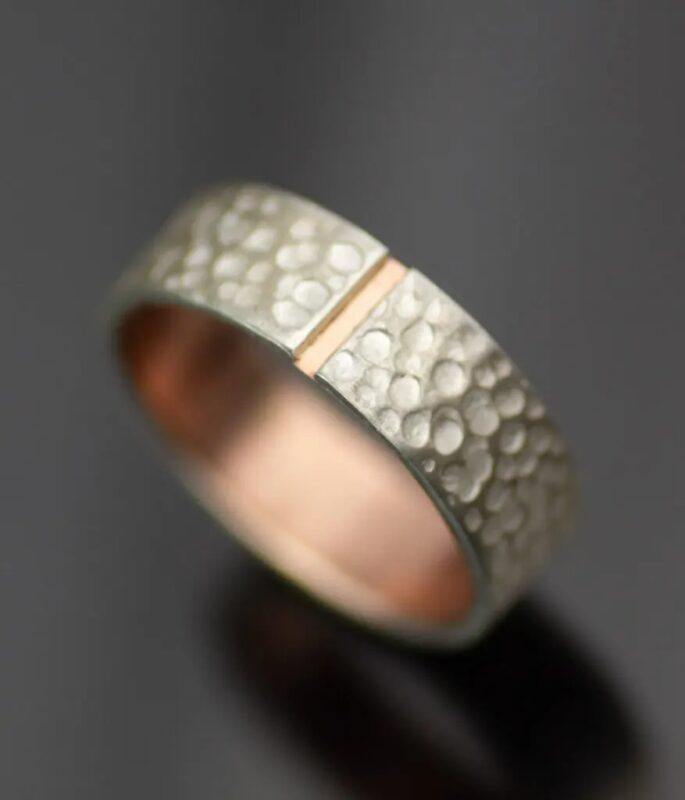
Final Thoughts: Finding the Right Metal for Your Wedding Ring
While gold has been a traditional choice for wedding rings, platinum, palladium, silver, and titanium offer unique benefits that may be more aligned with your personal preferences and budget. Don’t be afraid to break the norm and choose something unconventional for your ring. Whether you prioritize durability, affordability, or style, there’s a metal out there that can perfectly symbolize your commitment and love, while also expressing your individuality.
When deciding on the perfect alternative to gold, consider factors such as your lifestyle, personal taste, budget, and long-term wear. If you’re unsure about which metal is best for you, we offer virtual and in-person consultations to help guide you through the process.
